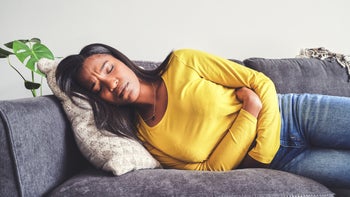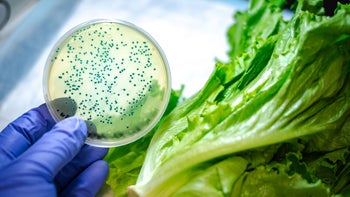
What Should You Eat and Drink After You Get Food Poisoning?
Key takeaways:
After food poisoning, it’s important to first replenish the fluids you lost while you were sick. Drinking fluids with electrolytes is the best way to do this.
You can try eating bland foods like pasta, potatoes, and rice after a bout of food poisoning. Carbohydrates will be easier to digest in the early phases of recovery.
Your gastrointestinal tract may need time to heal, and it can take up to a week for your appetite and digestion to return to normal.
Ease back into your normal diet. Avoid spicy or acidic foods, caffeinated beverages, and alcohol. Foods that are high in fats, protein, and fiber may also be hard to digest.
Food poisoning, or a stomach bug, can leave you pretty wiped out. Even after the vomiting and diarrhea have eased, your body needs time to recover. The recovery can last longer than the illness itself. We’ll go over what to expect when you’re recovering from food poisoning and what foods and drinks can help get you back to feeling your best.
What to expect when recovering from food poisoning
Food poisoning tends to start suddenly, but the recovery is more gradual. Food poisoning usually only lasts a few days. Often, the nausea and vomiting start to improve first. But as you start trying to eat and drink again, you may notice that things aren't quite back to normal.
Your digestion will likely be a bit sluggish while you’re in the recovery phase, which can last as long as a week. You may experience:
Irregular stool pattern or constipation
All this can do a number on your appetite and make it hard to get the fluids and nutrition your body needs to recover. As you start to eat and drink again, it’s a balance between taking it slow and nourishing your body. This is why it helps to know the foods and drinks that will be gentle on your gut as you recover.
How do you know if you need IV fluids? Most people can replenish their fluids at home. But here are the signs that you should go to the ER for dehydration.
Tips for eating without an appetite: It may take some time for your appetite to return to normal after food poisoning. Small changes in the way you eat can help get you back on track.
Is the BRAT diet helpful? Experts no longer recommend the BRAT diet as often as they used to. But some features of the diet can help after food poisoning.
What should you drink when recovering from food poisoning?
Food poisoning causes your body to lose a lot of fluids and electrolytes through vomiting and diarrhea. Even if your symptoms last only 24 hours, it’s important to rehydrate.
Water can help, but it doesn’t contain the salts you need to replenish your electrolytes and make a full recovery. Here are some better hydration options:
Oral rehydration solutions: Specially formulated drinks like Pediatlyte or Oralyte have the right amount of salt and sugar to help you hydrate. Sports drinks often have more sugar and less salt than you need. This added sugar can worsen bloating and any lingering diarrhea.
Broth: Savory broths can be soothing when you still have some residual nausea. They also make great hydration liquids because of their salt content.
Watered-down juice: If juice is the only drink that sounds appetizing, try sticking with clear juices like apple or cranberry. Avoid juices with pulp, which can be harder to digest. It’s also a good idea to add water to these drinks to lower their sugar content. Like sports drinks, sugary juices can worsen diarrhea.
Drinks to avoid while recovering from food poisoning
There are some liquids that are best to avoid altogether after food poisoning. The following drinks can worsen indigestion, bloating, and diarrhea:
Caffeinated drinks: Some people feel like coffee makes them poop. And there’s data that suggests coffee may cause you to experience more movement and cramping in your gut. So coffee could worsen any lingering discomfort or diarrhea.
Alcohol: Avoid drinking alcohol in the week after food poisoning to let your body recover. Drinking alcohol can lead to heartburn as well as diarrhea.
Diet drinks: The artificial sweeteners in these drinks can be hard to digest. Even if they don’t normally give you any trouble, your stomach and gut may be more sensitive to them after food poisoning.
What should you eat during and after food poisoning?
Food poisoning takes a toll on your digestive tract. Just the thought of chewing food can make some people nauseated. During and after food poisoning, certain foods are easier to keep down and can help your body recover.
During food poisoning, try eating:
Broth-based soups: Warm broth or chicken soup can be soothing for an upset stomach, and the salt content can help replenish bodily fluids. Plus, the vegetables and pasta in chicken soup are usually easy to digest. Chicken soup can also be anti-inflammatory, which may help you heal.
Popsicles or Jell-O: These can provide some hydration and nutrition without the discomfort of chewing solid food.
Saltine crackers: These provide electrolytes in the form of salt, and they’re bland and easy to digest.
You may have heard that the BRAT diet (bananas, rice, apples, toast) can help an upset stomach. But some actually think the BRAT diet is too restrictive and can lead to poor nutritional intake. Listen to your body, and aim for a balanced diet when you feel ready.
Even after food poisoning, getting into a normal eating pattern can be difficult. It’s best to ease your gut back into its routine with easy-to-digest foods. In general, carbohydrates are easier to digest than fat and protein. And it can be helpful to stick to bland foods.
After food poisoning, these foods may be a little easier for your gut to digest:
Pastas
Breads and crackers
Potatoes
Rice
Cereals
Oatmeal
Start with small meals and slowly work up from there. Large portions may also cause nausea or an upset stomach. You might need to eat small amounts more frequently throughout the day as your gastrointestinal tract recovers. Listen to your body as you ease back into eating regularly. If you experience discomfort, take a step back and try again when things settle down.
Foods to avoid when recovering from food poisoning
Some foods may be irritating or harder to digest. Foods to avoid include:
Spicy foods: Your gut may still be irritated, and spicy foods can worsen symptoms like heartburn. Also, foods with intense tastes may make nausea worse.
Fatty foods: Fat is a bit harder to digest than carbohydrates. So, avoid high-fat foods. It’s also best not to put butter or other oils on toast, pastas, or potatoes while recovering.
Foods high in protein: While these foods take less time to digest than fats, they’re still harder to digest than carbohydrates.
High-fiber foods: Fiber is generally good for your gut health, but after food poisoning it can be hard to digest and can worsen your symptoms.
Acidic foods: Pickles, tomatoes, citrus fruits, and other acidic foods can worsen heartburn-type symptoms, especially as you recover from food poisoning.
Dairy: Experts recommend staying away from dairy for about 3 days to avoid upsetting your stomach.
Can medications help you recover from food poisoning quickly?
Besides what to eat and drink, you may be wondering if there are any medications that can help get your body back on track. First, the best way to help yourself recover quickly is to rest and stay hydrated. As mentioned above, fluids are more important than food in the early phases of food poisoning. It may feel like work, but small, frequent sips will help.
Some medication may be able to help ease your symptoms along the way. But most people will do fine without them.
Loperamide (Imodium): Loperamide is an over-the-counter (OTC) medication that treats diarrhea. But it’s important not to take this medication if you have a fever or bloody diarrhea. The medication can prevent your body from getting rid of harmful bacteria that are causing your symptoms. Loperamide is also not safe for children under 12.
Bismuth subsalicylate (Pepto-Bismol): Bismuth subsalicylate is an OTC medication that also helps ease symptoms of an upset stomach, like nausea and diarrhea. It’s also not safe for children under 12 because it contains aspirin.
Dimenhydrinate (Dramamine) or meclizine (Bonine): Dimenhydrinate and meclizine are OTC medications for motion sickness but they may help with mild nausea. Note that they also can make you sleepy.
Ondansetron (Zofran): Ondansetron is a prescription medication for nausea. Consider reaching out to your primary care provider if you’re experiencing intense nausea and/or having a hard time keeping down fluids.
Can probiotics help you recover from food poisoning?
Probiotics can help keep your gut healthy and working its best. And they may help you recover from diarrhea. While scientists don’t completely understand how probiotics work, they think that these bacteria can release molecules that strengthen the body’s defenses and help fight infection.
But different strains of probiotics can have different effects. It may be best to talk with a healthcare professional before starting probiotics — especially if you want to start them after you’ve been sick.
When to see a doctor for food poisoning
Even though most people can safely recover from food poisoning at home, it can still lead to serious illness or complications in some people. Sometimes, symptoms that seem like food poisoning may be a more serious infection.
See a healthcare professional or get immediate medical attention if you’re experiencing:
Dizziness or lightheadedness, especially if you feel like you’re going to pass out
Difficulty staying awake
Confusion
Persistent or worsening abdominal pain
Uncontrollable vomiting
Bloody diarrhea
Fever that lasts longer than 2 days
Symptoms that last longer than a week
It’s also a good idea to see your healthcare professional if you’re at increased risk of developing a more serious illness. This includes children under 5 years, adults over 65 years, and people with weaker immune systems.
The bottom line
Food poisoning can come on very quickly, but often recovery is more gradual. Your gut can take an especially long time to recover. It’s normal to experience some ongoing nausea, indigestion, or bloating — even after the vomiting and diarrhea have passed.
Be patient with your body and ease back into eating your normal diet. Start with small meals, and pay attention to how you feel after you eat certain foods. This will give your body the time it needs to fully recover.
Why trust our experts?


References
Britton, R. A., et al. (2008). Probiotics and gastrointestinal infections. Interdisciplinary Perspectives on Infectious Diseases.
Bujanda, L. (2000). The effects of alcohol consumption upon the gastrointestinal tract. The American Journal of Gastroenterology.
Churgay, C. A., et al. (2012). Gastroenteritis in children: Part II. Prevention and management. American Family Physician.
Iriondo-DeHond, A., et al. (2021). Effects of coffee and its components on the gastrointestinal tract and the brain–gut axis. Nutrients.
Mäkinen, K. K. (2016). Gastrointestinal disturbances associated with the consumption of sugar alcohols with special consideration of xylitol: Scientific review and instructions for dentists and other health-care professionals. International Journal of Dentistry.
National Institute of Diabetes and Digestive and Kidney Diseases. (2019). Treatment for food poisoning.
Rennard, B. O., et al. (2000). Chicken soup inhibits neutrophil chemotaxis in vitro. Chest.
Rennard, S. I., et al. (2020). Chicken soup in the time of COVID. Chest.














